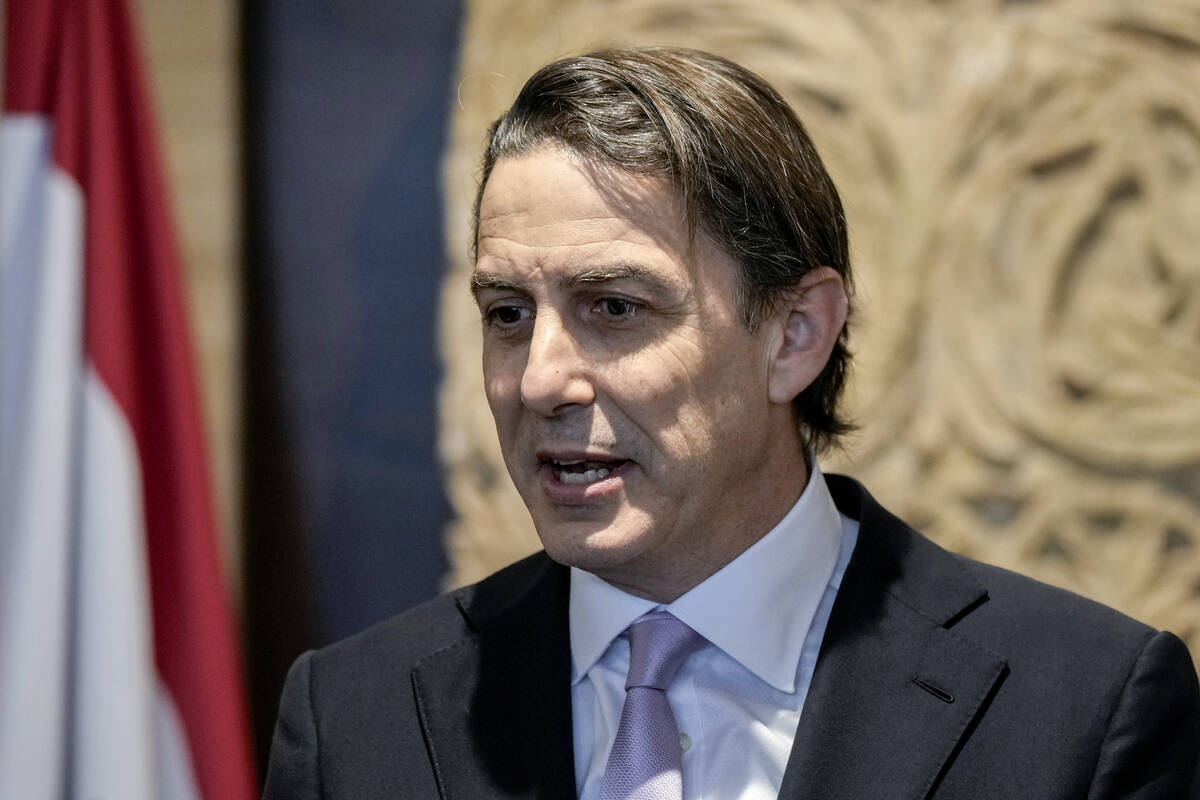U.S. envoy says Israel-Hezbollah ceasefire offers opportunity for Lebanon

DOHA, Qatar — The U.S. envoy who brokered the ceasefire between Israel and Hezbollah says the deal has created a new opportunity for Lebanon to reshape itself.
Amos Hochstein told the Doha Forum that the weakness of Hezbollah after nearly 14 months of fighting along, along with blows to its Syrian and Iranian allies, give the Lebanese military and government a chance to reassert itself.
“Now is the moment with this ceasefire to rebuild Lebanon again for a much more prosperous future and stronger state institutions,” Hochstein told The Associated Press on the sidelines of the conference.
He said Lebanon needs “to do its part” by rebuilding its economy, choosing a president after years of delays and strengthening its central government to attract investors.
“And the international community has a requirement and a responsibility to support Lebanon after this devastating conflict and after years of Hezbollah control,” he said.
Hochstein told the conference that the turning point in ceasefire efforts was Hezbollah dropping its pledge to keep fighting as long as the war in Gaza continues. He said the change in position was the result of the heavy losses inflicted on Hezbollah, and Lebanese public opinion in favor of delinking the two conflicts.
He said key tests for the ceasefire will be whether Israel carries out its promised phased withdrawal from southern Lebanon over the coming two months and whether the Lebanese army is able to move into those areas.
Hamas releases video
In Gaza, Hamas released a video showing Israeli hostage Matan Zangauker making an emotional plea for his release and describing the conditions he and other hostages face after being seized in the Oct. 7, 2023, Hamas-led terrorist attack on Israel.
His mother, Einav, has become a symbol of the fight to bring back the hostages and is an outspoken critic of Prime Minister Benjamin Netanyahu’s government.
Matan Zangauker, speaking under duress, appealed to the public to protest in front of Netanyahu’s home and “not let him sleep even for a minute.”
Zangauker also referred to 420 days of being held by Hamas terrorists. “We want to return before we go crazy. Isolation is killing us, and the darkness here is frightening,” he said, describing having little food and medicine and “undrinkable” water.
Qatari prime minister sees movement
The prime minister of Qatar said he has seen new momentum in Gaza ceasefire efforts since the U.S. presidential election, with the incoming Trump administration seeking an end to the conflict before it takes office.
Sheikh Mohammed bin Abdulrahman Al Thani, a key mediator in the ceasefire efforts, declined to give specifics of the negotiations but told an international conference in Doha that the gaps between the sides are not large.
Qatar, which has served as a mediator throughout the 14-month war, suspended its efforts last month in frustration over the lack of progress. But Sheikh Mohammed said his government has re-engaged in recent days after determining a new willingness by both parties to reach a deal.
“We have sensed after the election that the momentum is coming back,” he told the Doha Forum on Saturday.
He said has been in touch with both the outgoing Biden administration and the incoming Trump administration and found that while there are some differences in approach, both are committed to the same goal of ending the war.
‘We have seen a lot of encouragement from the incoming administration in order to achieve a deal, even before the president comes to the office,” Sheikh Mohammed said.
He declined to discuss details, saying he wanted to “protect the process,” but expressed hope for a deal “as soon as possible.”
‘If you look at the gaps and the disagreements, they are not something substantial that really affects the agreement,” he said.
Israel’s military says it isn’t intervening in Syria
Israeli Lt. Gen. Herzi Halevi said the military is monitoring the Syrian border to make sure that “local factions do not direct actions towards us,” adding that Israel is not intervening in the events in Syria.
Israel’s military has said it is reinforcing its deployment along the border with Syria. Halevi said if “confusion” arises and actions are directed toward Israel by “local factions” taking control of parts of Syria, Israel has a strong “offensive response.”